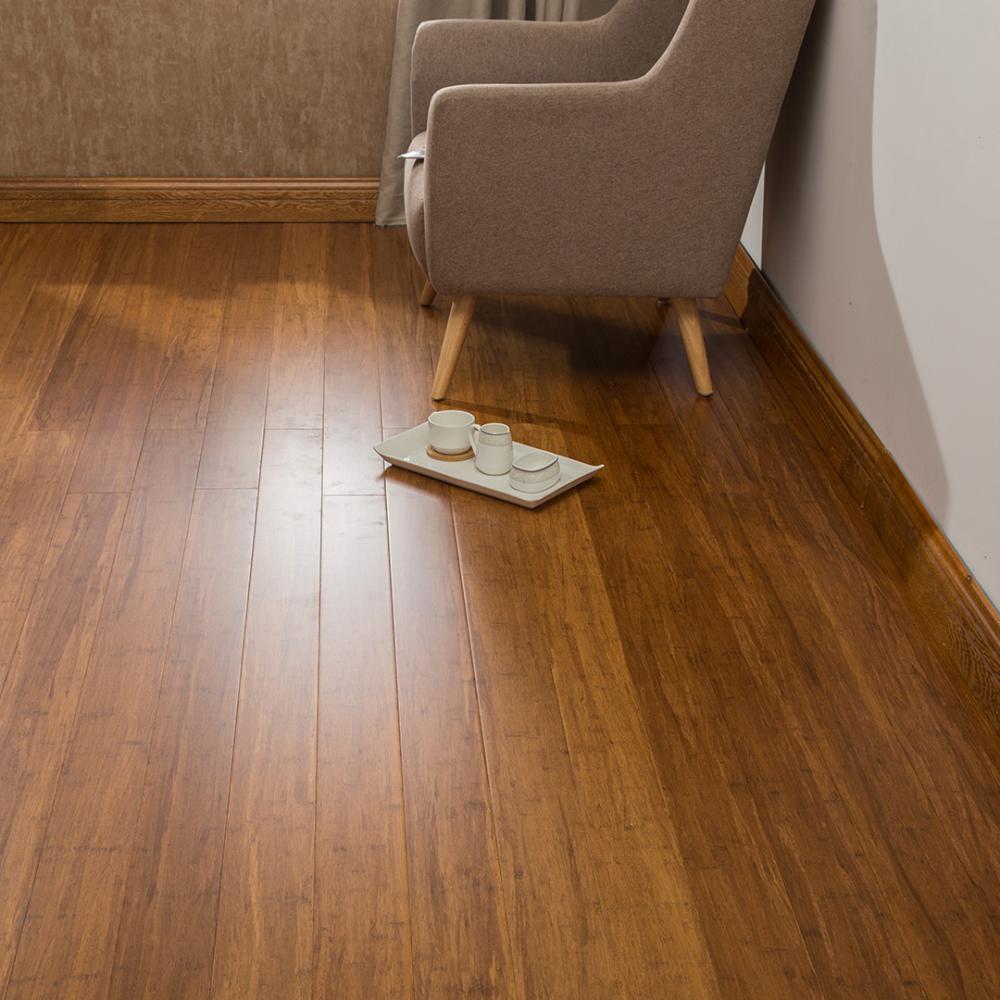
Bamboo Flooring: Nature’s Fastest-Growing Answer to Durable, Sustainable Surfaces
When it comes to choosing flooring that balances beauty, performance, and environmental responsibility, bamboo continues to rise as a top contender—especially for commercial projects where durability and sustainability matter most. As a bamboo flooring technologist, I’ve witnessed firsthand how this remarkable material, especially in its strand woven form, has reshaped expectations across the flooring industry. With fast growth, low environmental impact, and incredible strength, bamboo is more than just an eco-friendly option—it’s a smart, high-performance solution.
A Renewable Resource That Grows at Record Speed
Bamboo is often celebrated for one of its most unique traits: how quickly it grows. Unlike hardwood trees, which can take decades to mature, certain species of bamboo—like Phyllostachys edulis (commonly known as Moso bamboo)—reach full maturity in just 4 to 6 years. This rapid growth means bamboo can be harvested more frequently without depleting forests or damaging ecosystems.
Because bamboo is a grass, not a tree, it regenerates from the same root system after harvesting—no need for replanting. This natural regeneration process significantly reduces soil erosion and supports carbon sequestration. In fact, bamboo can absorb up to 35% more carbon dioxide than an equivalent stand of trees, while delivering more oxygen back into the atmosphere.
Strand Woven Bamboo: A Leap in Flooring Technology
While traditional bamboo flooring is made by slicing and gluing strips of bamboo together, strand woven bamboo takes things to an entirely different level. This advanced manufacturing process involves shredding the bamboo stalks into fibers, then compressing them under intense heat and pressure with adhesives to form dense planks.
The result is a flooring product that is not only visually striking—with a rich, natural grain—but also significantly denser and harder than many conventional hardwoods. Strand woven bamboo typically scores over 3,000 on the Janka hardness scale, outperforming even Brazilian cherry and maple. This makes it exceptionally suited to high-traffic commercial environments such as offices, hotels, retail stores, and restaurants.
High Density, High Performance
The density of strand woven bamboo is one of its most defining features. Through the compression process, the fibers are packed tightly, eliminating most of the natural air pockets found in traditional wood or bamboo planks. This high density translates into several practical advantages:
- Superior impact resistance – Ideal for spaces with rolling loads, heavy foot traffic, or frequent furniture movement.
- Reduced risk of denting – The dense surface resists indentation from heels, furniture legs, and dropped objects.
- Improved sound insulation – Denser material helps absorb sound, creating a quieter indoor environment.
This performance is particularly valuable in commercial settings where flooring needs to maintain its appearance and integrity under constant use.
Stability Across Seasons
Another key advantage of strand woven bamboo is its dimensional stability. Thanks to the cross-laminated structure and tightly compressed fibers, this flooring is less prone to expansion and contraction caused by changes in temperature and humidity. For commercial projects, where HVAC systems may fluctuate or where climate control is imperfect, this stability helps prevent warping, cupping, or gapping over time.
Proper installation—such as acclimating the material to the space, using appropriate underlayments, and maintaining consistent humidity—enhances these benefits even further. In addition, strand woven bamboo can be installed using various methods, including floating, glue-down, or nail-down, offering flexibility for different project requirements.
Designed for Longevity and Durability
Commercial floors face more than just foot traffic—they endure spills, dirt, dragging furniture, and constant wear. Strand woven bamboo’s tough surface and dense construction make it highly resistant to scratches, scuffs, and staining. Factory-applied aluminum oxide finishes further enhance this durability, creating a protective layer that withstands years of use without losing its luster.
For maintenance teams, the low upkeep of bamboo flooring is a welcome bonus. Regular sweeping and occasional damp mopping are generally all that’s needed to keep the floors looking fresh. And when properly maintained, strand woven bamboo can last for decades, even in busy environments.
A Smart Choice for Sustainable Design
More architects and designers are specifying bamboo flooring in LEED-certified and green building projects, and it’s easy to see why. Strand woven bamboo meets multiple sustainability criteria:
- Rapid renewability – Harvested in 5 years or less
- Low VOC finishes – Contributing to better indoor air quality
- Resource efficiency – Less material waste during manufacturing
- Compliance with emission standards – CARB Phase 2, E1, and FloorScore certifications
These credentials not only align with eco-conscious values but also help projects meet regulatory and certification goals, adding value to the overall development.
Natural Beauty Meets Modern Efficiency
Beyond its technical benefits, bamboo has a naturally elegant appearance. Strand woven bamboo offers a wide range of colors and textures—from light, natural tones to rich, carbonized hues—making it versatile for both modern and traditional interior styles. With advanced staining and finishing techniques, manufacturers can offer options that mimic exotic hardwoods while retaining bamboo’s distinctive character.
This aesthetic flexibility is especially useful in commercial design, where visual impact plays a role in customer experience and brand identity.
Conclusion-Free, But Forward-Facing
Bamboo flooring, particularly in its strand woven form, is no longer a niche option—it’s a proven, high-performance material that meets the demands of modern commercial spaces. With its rapid renewability, outstanding strength, and refined appearance, it offers unmatched value for those looking to build sustainably without compromising durability or style.
Whether you’re specifying flooring for a retail chain, a corporate office, or a hospitality venue, strand woven bamboo deserves a place on your shortlist—not just for what it does for the environment, but for how well it performs under pressure.
